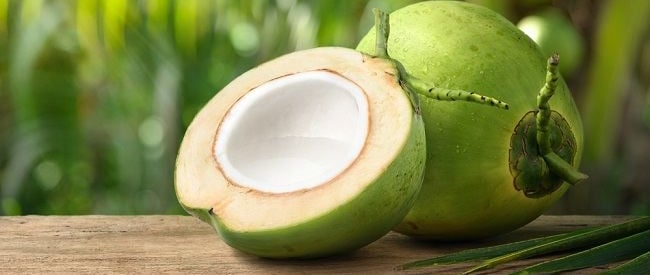The Rising Price of Paradise: Why Indonesia's Coconut Demand is Skyrocketing and What It Means for You
Indonesia, the world's largest coconut producer, is currently experiencing an unprecedented surge in coconut prices. What's driving this seemingly sudden increase for a staple commodity, and how does it affect everyone from local street food vendors to global industries?
HOOKAH/SHIHABBQ
Tropicoal Team
6/29/20256 دقيقة قراءة


1. The Coconut: A Staple Under Pressure
For generations, the coconut palm has been revered as the "tree of life" in Indonesia, providing sustenance, shelter, and livelihoods. From its refreshing water and rich milk to its versatile oil and fibrous husks, every part of the coconut finds a use. It is deeply ingrained in Indonesian cuisine, culture, and economy. However, in recent months, this omnipresent commodity has seen its price climb significantly, leaving many consumers and industries grappling with higher costs. What's behind this shift? It's a confluence of strong global demand, domestic supply issues, and the realities of agricultural production in a changing climate.
2. The Global Thirst for Coconuts: A Primary Driver
One of the most significant factors contributing to the price hike is the escalating international demand for coconuts and their derivatives. The global market has developed an insatiable appetite for coconut products, driven by several key trends:
Health and Wellness Boom: Coconut oil, virgin coconut oil (VCO), coconut water, and coconut milk are celebrated worldwide for their perceived health benefits. Consumers are increasingly seeking natural, plant-based alternatives to traditional dairy and oils, and coconut products fit this bill perfectly.
Food and Beverage Innovation: From vegan desserts and smoothies to exotic culinary creations, coconut is a star ingredient. Its unique flavor and texture are being incorporated into an ever-widening array of food and beverage products, fueling industrial demand.
Cosmetics and Personal Care: Coconut oil's moisturizing and nourishing properties make it a popular ingredient in skincare, haircare, and cosmetic products. The natural beauty movement has significantly boosted this sector's demand for coconut derivatives.
Industrial Applications: Beyond food and cosmetics, coconut derivatives like activated carbon (from coconut shells) are in high demand for water purification, air filtration, and various industrial processes, as discussed in our previous blog post.
Indonesia, being the world's largest producer of coconuts, naturally becomes a prime target for this burgeoning global demand. Countries like China, the Netherlands, the United States, and India are major importers of Indonesian coconuts, both raw and processed. Reports indicate that raw coconut exports, particularly to China, have surged, often outpacing the needs of the domestic market and offering more lucrative prices to farmers and traders.
3. Domestic Supply Squeeze: A Multi-faceted Challenge
While booming export markets are pulling coconuts out of the country, several internal factors are simultaneously constricting Indonesia's domestic supply:
Uncontrolled Exports: The allure of higher prices in the international market has led to an uncontrolled flow of raw, whole coconuts leaving Indonesian shores. This rampant export, at times even involving illegal channels, directly reduces the raw material available for local processing industries. Indonesian Coconut Processing Industry Association (HIPKI) reports that many local processing facilities are struggling with severe raw material shortages, operating at significantly reduced capacities. Some have even temporarily ceased production or laid off workers.
Climate Change Impacts: The agricultural sector in Indonesia is highly susceptible to climate variations. The El Nino phenomenon in 2023, for instance, had a detrimental effect on coconut yields, causing flowers and potential fruits to drop. While long-term data shows relatively stable production, short-term climatic events can significantly impact supply.
Stagnant Productivity: Despite being the largest producer, Indonesia's average coconut yield per hectare remains relatively low compared to its potential. Many coconut plantations are old and past their prime productivity. Smallholder farmers, who account for nearly 98% of Indonesia's coconut production, often employ traditional farming practices with limited access to superior seeds, fertilizers, and modern cultivation techniques. This hinders overall production growth.
Competition from Other Crops: Coconut farming often competes with other more profitable crops, notably palm oil. Farmers might be incentivized to convert their coconut land to palm oil plantations due to higher and more stable income streams, further contributing to the stagnation or even decline of coconut production areas.
Suboptimal Supply Chain: The geographical spread of coconut plantations across numerous islands, combined with high transportation costs and a lack of integrated logistics, can make it challenging to efficiently move coconuts from production centers to processing industries and consumer markets within Indonesia. This inefficiency adds to the overall scarcity and price volatility.
4. The Ripple Effect: Who Feels the Pinch?
The soaring price of coconuts has wide-ranging consequences across Indonesia:
Consumers: Everyday Indonesians rely on coconuts for cooking, traditional snacks, and beverages. The rising cost of fresh coconuts directly translates to higher prices for grated coconut, coconut milk, and other coconut-based ingredients, impacting household budgets.
Local Industries: Small and medium enterprises (SMEs) that depend on coconuts as their primary raw material—such as producers of traditional coconut oil, desiccated coconut, coconut flour, or even nata de coco—are facing immense pressure. Many cannot compete with the prices offered by international buyers, leading to reduced production, financial losses, and even closures. This jeopardizes thousands of jobs and the vitality of local economies.
Farmers: While higher prices might seem beneficial for farmers, the reality is more complex. Many smallholders may not directly benefit from the elevated export prices if they sell through multiple layers of middlemen. Furthermore, the long-term sustainability of their livelihoods depends on stable yields and access to support for improving productivity.
Export Market Stability: If domestic industries collapse due to raw material shortages, Indonesia risks losing its competitive edge in the global market for value-added coconut products. Countries like the Philippines, India, and Vietnam could capitalize on Indonesia's supply issues, eroding its market share.
5. Towards a Sustainable Coconut Future: Solutions and Opportunities
Addressing the current coconut crisis requires a multi-pronged approach involving government, industry, and farmers:
Export Regulation and Monitoring: The Indonesian government is urged to implement stricter regulations on raw coconut exports, potentially through quotas or higher export levies. These measures could help prioritize domestic supply and stabilize local prices. Funds from export levies could be reinvested into the coconut sector.
Increasing Productivity and Rejuvenation Programs: Investing in programs to rejuvenate aging coconut plantations, provide farmers with superior seeds, and offer training in modern, sustainable farming practices is crucial. This includes better fertilization, pest control, and intercropping strategies to maximize land use and farmer income.
Strengthening Domestic Processing Industries: Incentives and support for local coconut processing industries can help them secure raw material supply and remain competitive. This could involve direct procurement programs from farmers, infrastructure development for better logistics, and promoting the production of higher-value, downstream coconut products (e.g., charcoal briquettes, VCO, instant coconut milk, coconut-based beauty products).
Research and Development: Continued research into drought-resistant coconut varieties, innovative processing technologies, and new applications for coconut by-products can further enhance the industry's resilience and profitability.
Farmer Empowerment: Improving the welfare of smallholder farmers is paramount. This includes ensuring fairer prices for their produce, facilitating access to capital and technology, and establishing more direct supply chains to minimize the role of intermediaries. Diversifying farmer income through value-added activities at the farm level can also be beneficial.
Government Roadmap and Synergy: The government's "Coconut Downstream Roadmap 2025-2045" is a positive step, outlining plans for plant rejuvenation, industrial ecosystem strengthening, and facility construction near production centers. Effective implementation and strong synergy between all stakeholders—farmers, industry players, and government agencies—will be key to its success.
Conclusion:
The current surge in coconut prices in Indonesia is a stark reminder of the interconnectedness of global demand, local supply, and environmental factors. While the world's increasing appetite for healthy and natural products fuels export opportunities, it also creates significant challenges for domestic consumers and processing industries. Indonesia's position as a global leader in coconut production is a valuable asset, but it requires careful management to ensure sustainability and equitable distribution of benefits. By implementing smart regulations, investing in agricultural modernization, and empowering local communities, Indonesia can navigate this period of high demand, stabilize prices, and secure a prosperous future for its "tree of life" and all those who depend on it. The journey towards a more resilient and balanced coconut industry is essential not just for Indonesia, but for the global market as well.


